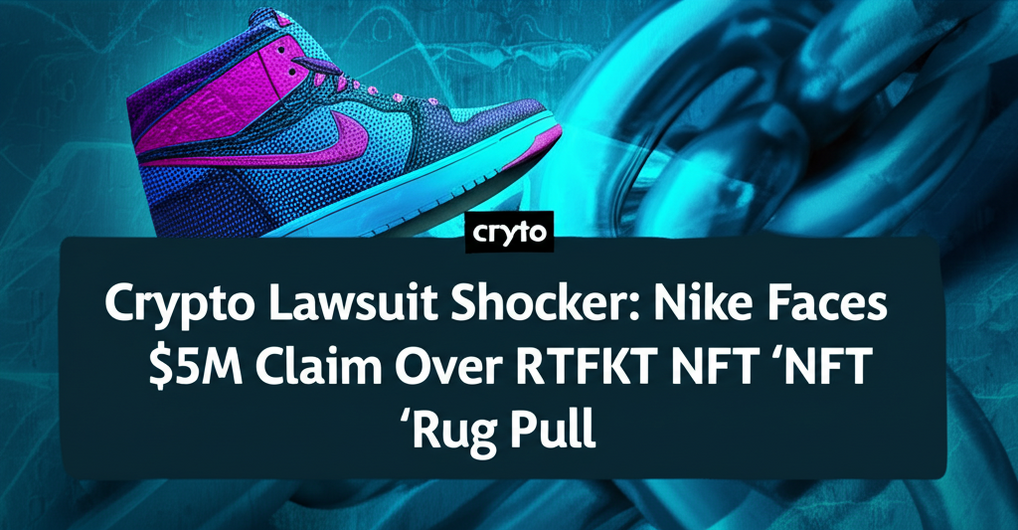Crypto Lawsuit Shocker: Nike Faces $5M Claim Over RTFKT NFT ‘Rug Pull’

Nike is facing significant legal challenges as a group of non-fungible token (NFT) holders initiates a class-action lawsuit concerning the closure of its RTFKT digital platform. This crypto lawsuit alleges the sportswear giant orchestrated a “rug pull,” leaving investors with devalued digital assets.
A formal complaint lodged in the U.S. District Court for the Eastern District of New York outlines the plaintiffs’ grievances. They contend Nike aggressively marketed its sneaker-themed NFTs, benefiting from both primary and secondary market sales, only to cease RTFKT operations in January 2025. This shutdown allegedly caused substantial financial losses for NFT holders.
Spearheaded by RTFKT owner Jagdeep Cheema, the lawsuit demands $5 million in damages and requests a jury trial. The core accusation is that Nike breached consumer protection laws and distributed unregistered securities through its NFT offerings, a significant point of contention as the crypto industry seeks SEC clarity on NFTs.
The plaintiffs assert that the Nike NFTs function as securities according to the Howey Test criteria. They argue that buyers invested money anticipating profits derived from Nike’s continued management and development of the RTFKT ecosystem, classifying it as a common enterprise.
“Relevant law classifies this type of digital asset as a security, requiring issuers to register them and comply with securities regulations. The Nike NFTs lacked such registration,” the legal filing states.
Nike’s foray into the digital collectibles space began with the acquisition of RTFKT in December 2021, coinciding with peak NFT market enthusiasm. RTFKT gained recognition for merging fashion, gaming, and blockchain technology, attracting both crypto enthusiasts and sneaker collectors.
High-profile projects like CloneX and Cryptokicks generated millions, fueled by promises of interactive experiences, quests, forging events, and exclusive links between digital items and physical merchandise.
However, the excitement surrounding RTFKT waned as the overall NFT market experienced a significant downturn through 2023 and 2024. The trend of declining NFT project values became widespread.
In December 2024, Nike revealed plans to wind down RTFKT following a final “Blade Drop” release. The company framed this as a move to preserve the brand’s legacy, not a complete termination.
Despite this framing, the plaintiffs argue Nike’s withdrawal decimated the value of the NFTs, which previously commanded high prices. Promised features like ecosystem rewards, quests, and exclusive product access vanished, undermining the initial value proposition.
Nike and RTFKT had reportedly promoted the NFTs based on a vibrant peer-to-peer trading market and an active ecosystem where user engagement added tangible value. The shutdown effectively dismantled these features, causing the secondary market to collapse and NFT prices to plummet—a scenario reminiscent of other alleged crypto rug pulls.
“Prices predictably crashed without recovery. Investors cited in this complaint, along with the broader crypto community, decried Nike’s actions as a clear rug pull,” the lawsuit concludes.
